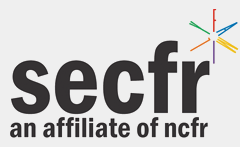Family-Centric Model: Building Trust to Educate and Empower Families
Proposal Focus
Practice
Presentation Type
Presentation
Abstract
The risk factors associated with intergenerational transmission of poverty have been well established within Family Science literature for decades. Multiple efforts have been extended at the community level to meet needs, however, few have been successful in breaking the cycle of poverty within families. In 2007, local civic leaders spent two years studying and comparing the efforts of surrounding service organizations and their impact on the multigenerational cycle of poverty in a metropolitan city in South Georgia. In 2011, findings lead to the creation of a unique family life education program that engaged families residing in inner-city neighborhoods to help family members with parenting skills. The design of the program focuses on helping families create safe, language-rich, interactive family environments for their children. The intention of this program is to enable family members to effectively serve as their children’s first teachers and prepare their preschool children for entry into kindergarten, however this program has also begun to impacted the community through the creation of leadership tracks for attendees who have shifted from learner to leader. With each year, participants lead the way to adding program elements, such as transportation, baby showers, and vision screening, to reach the needs of the community members and increase enrollment.
This presentation will highlight the family-centric education model and data summary to date. Trust- and rapport-building along with empowering families and ultimately impacting the whole community will be emphasized as agents of change. This presentation will also include an overview of the history of this program and will discuss its unique attributes that has brought together people from across the community. The guiding principles of trust and respect among participants are central to all discussions, which has been found to be critical for the success of a program (Wiley & Ebata, 2004; Ballard & Taylor, 2012). This presentation will provide direction on how to empower participants by strengthening their voice in the program planning process. Insight into how this program can be replicated in areas across the United States will be discussed.
In Fall 2017, an analysis and summary of previously collected data began and additional methodologies were added to better understand the quantifiable impact of the program thus far. Preliminary data analyses on participation revealed that from August 2013 to Summer 2017, which included more than 50 Saturday trainings, totaled 2,890 attendees. Each Saturday training averaged 60 learners with this increasing across time. The data collected in Fall 2017 provided more in-depth demographic information as well as more consistent pre-post evaluations of each training session. Data will be discussed to provide interesting insights into participant learning and the unique population being served. Data from the pilot through Fall 2017 will be presented confirming that through targeted outreach and resources, communities can be empowered.
Keywords
family life education, parenting education, community
Location
Tiger I
Start Date
9-3-2018 3:30 PM
End Date
9-3-2018 4:15 PM
Family-Centric Model: Building Trust to Educate and Empower Families
Tiger I
The risk factors associated with intergenerational transmission of poverty have been well established within Family Science literature for decades. Multiple efforts have been extended at the community level to meet needs, however, few have been successful in breaking the cycle of poverty within families. In 2007, local civic leaders spent two years studying and comparing the efforts of surrounding service organizations and their impact on the multigenerational cycle of poverty in a metropolitan city in South Georgia. In 2011, findings lead to the creation of a unique family life education program that engaged families residing in inner-city neighborhoods to help family members with parenting skills. The design of the program focuses on helping families create safe, language-rich, interactive family environments for their children. The intention of this program is to enable family members to effectively serve as their children’s first teachers and prepare their preschool children for entry into kindergarten, however this program has also begun to impacted the community through the creation of leadership tracks for attendees who have shifted from learner to leader. With each year, participants lead the way to adding program elements, such as transportation, baby showers, and vision screening, to reach the needs of the community members and increase enrollment.
This presentation will highlight the family-centric education model and data summary to date. Trust- and rapport-building along with empowering families and ultimately impacting the whole community will be emphasized as agents of change. This presentation will also include an overview of the history of this program and will discuss its unique attributes that has brought together people from across the community. The guiding principles of trust and respect among participants are central to all discussions, which has been found to be critical for the success of a program (Wiley & Ebata, 2004; Ballard & Taylor, 2012). This presentation will provide direction on how to empower participants by strengthening their voice in the program planning process. Insight into how this program can be replicated in areas across the United States will be discussed.
In Fall 2017, an analysis and summary of previously collected data began and additional methodologies were added to better understand the quantifiable impact of the program thus far. Preliminary data analyses on participation revealed that from August 2013 to Summer 2017, which included more than 50 Saturday trainings, totaled 2,890 attendees. Each Saturday training averaged 60 learners with this increasing across time. The data collected in Fall 2017 provided more in-depth demographic information as well as more consistent pre-post evaluations of each training session. Data will be discussed to provide interesting insights into participant learning and the unique population being served. Data from the pilot through Fall 2017 will be presented confirming that through targeted outreach and resources, communities can be empowered.
![Southeastern Council on Family Relations Conference [2018-2020]](/assets/md5images/a0d3661d5139dc9b769a57be6f085156.png)

